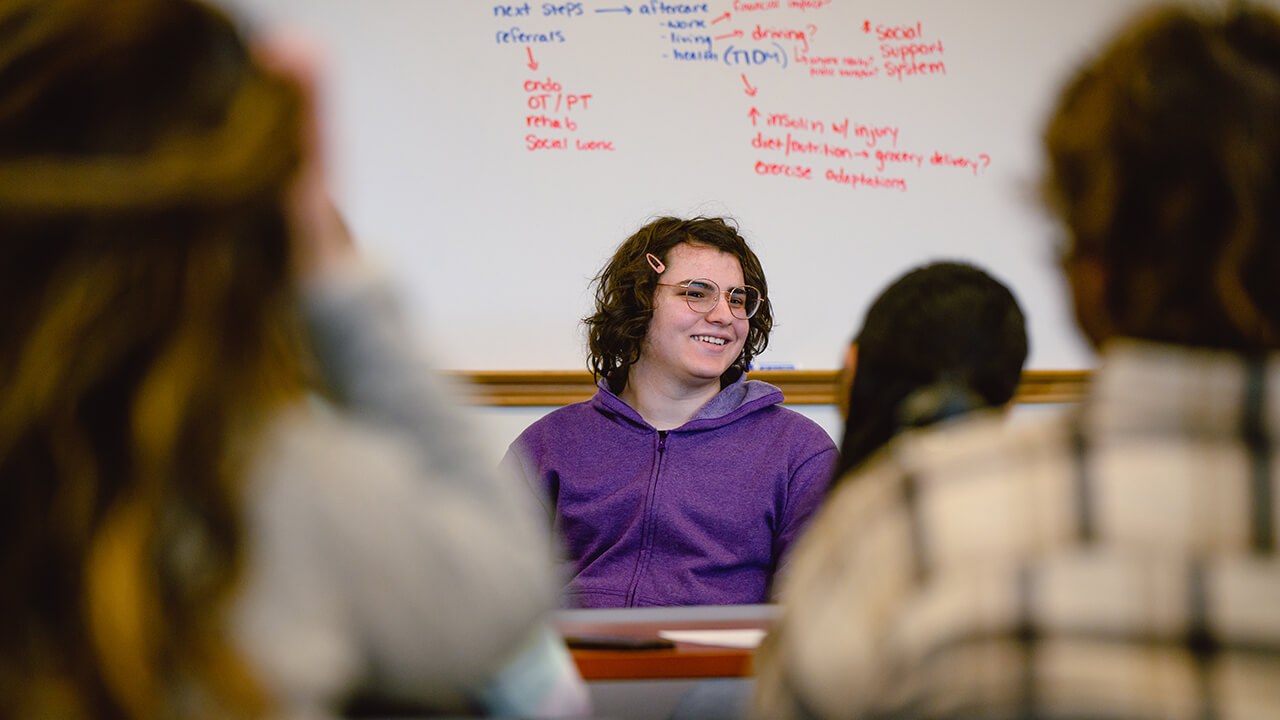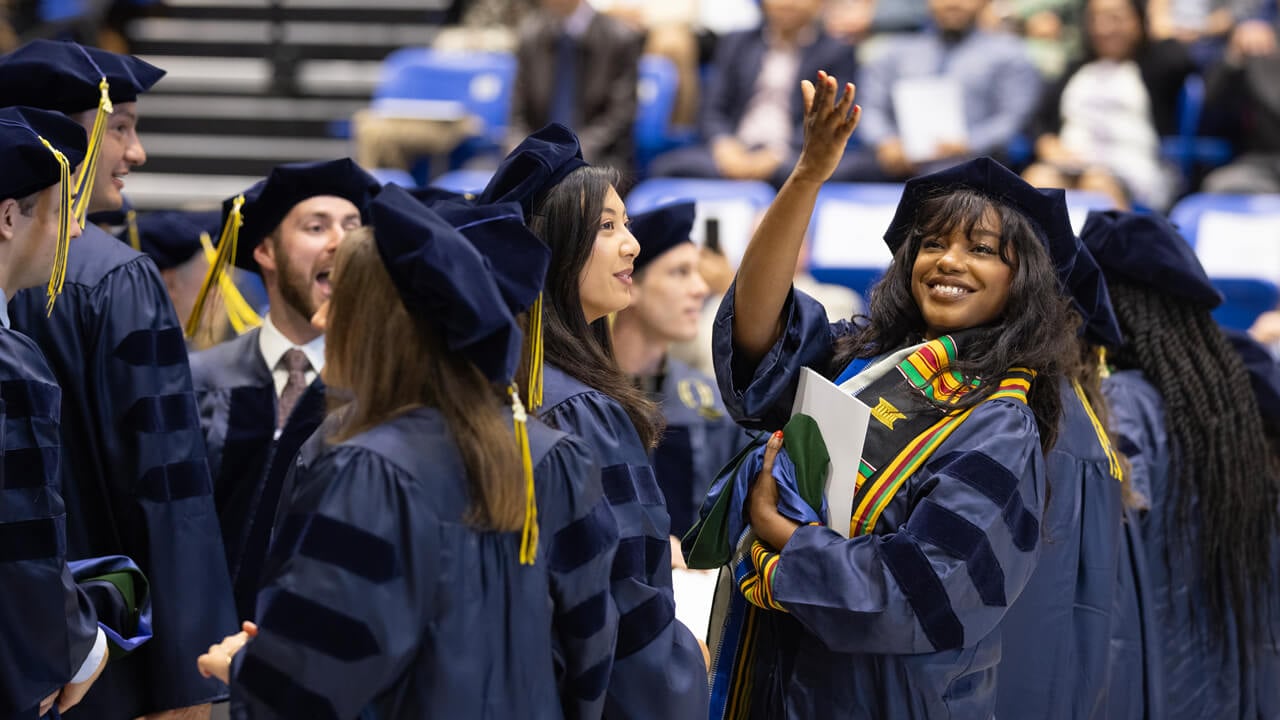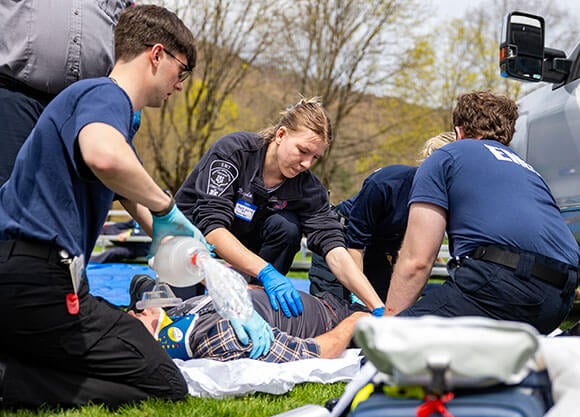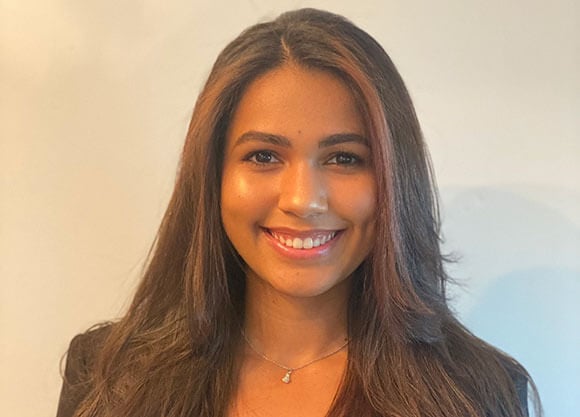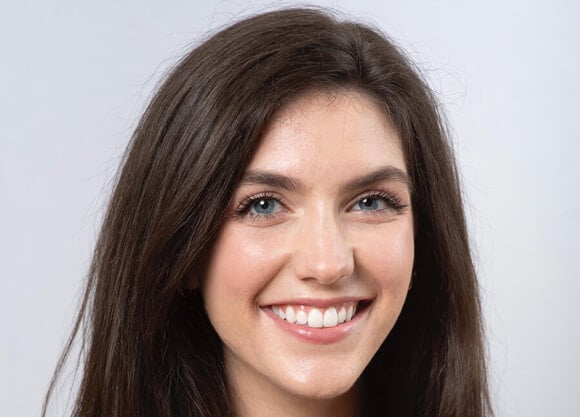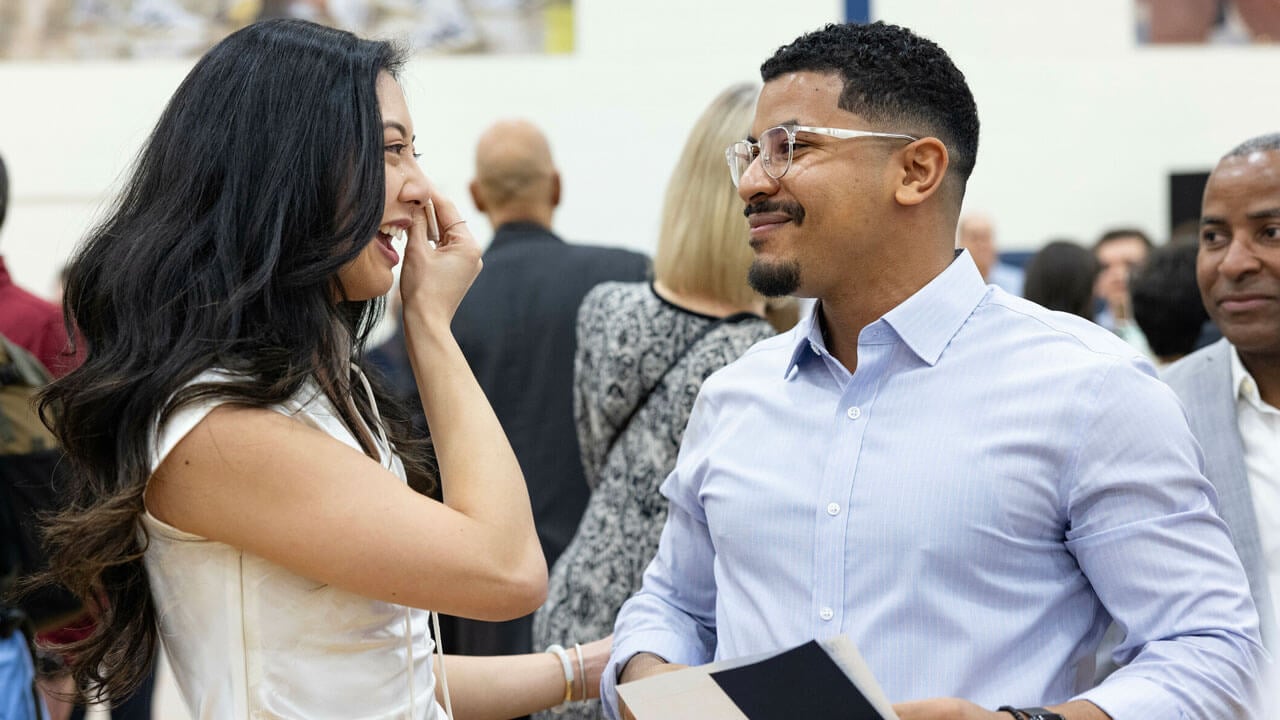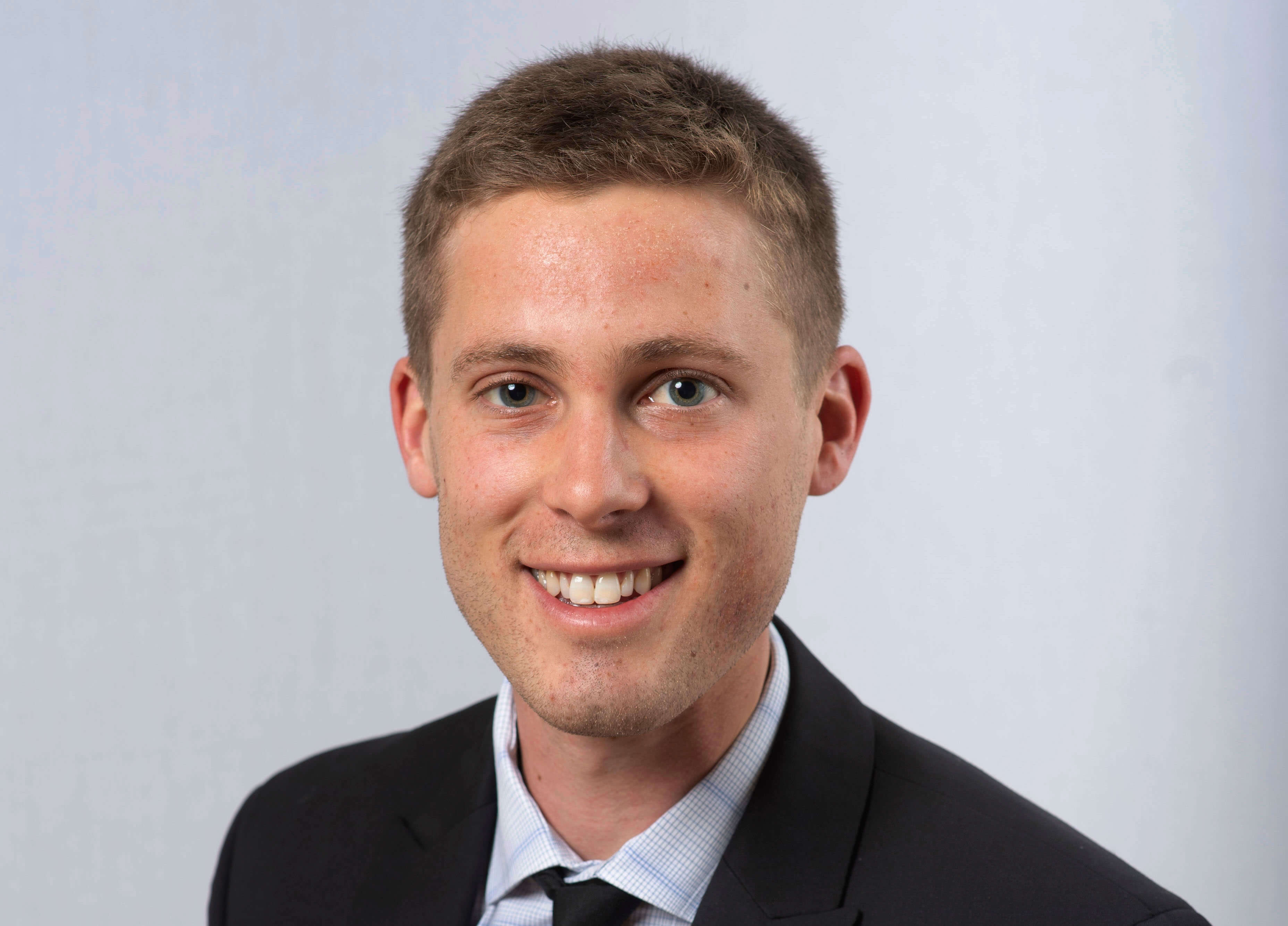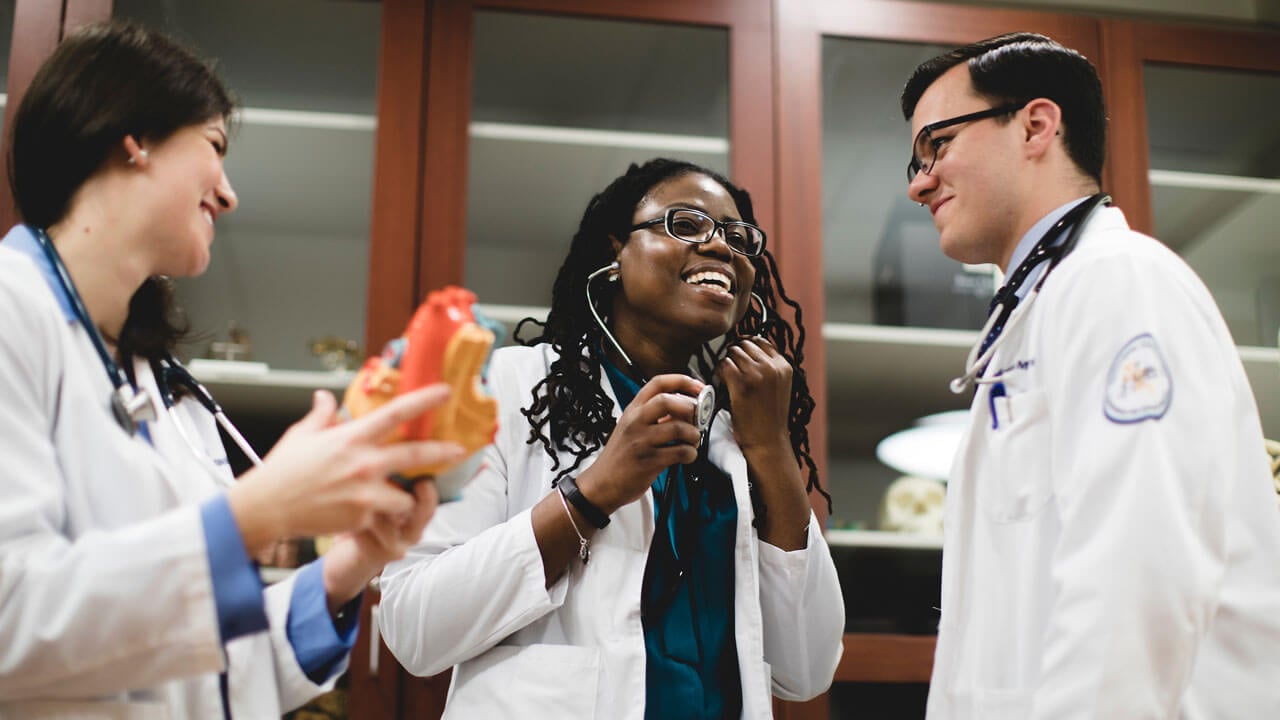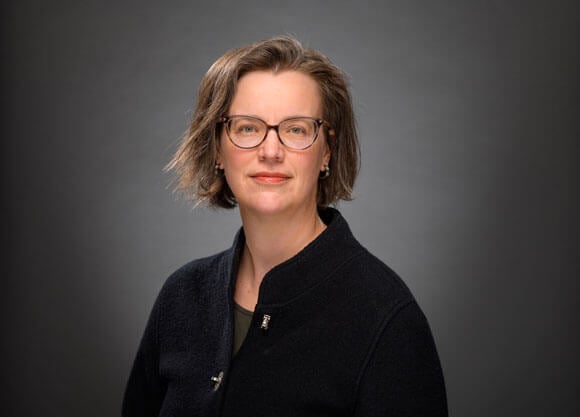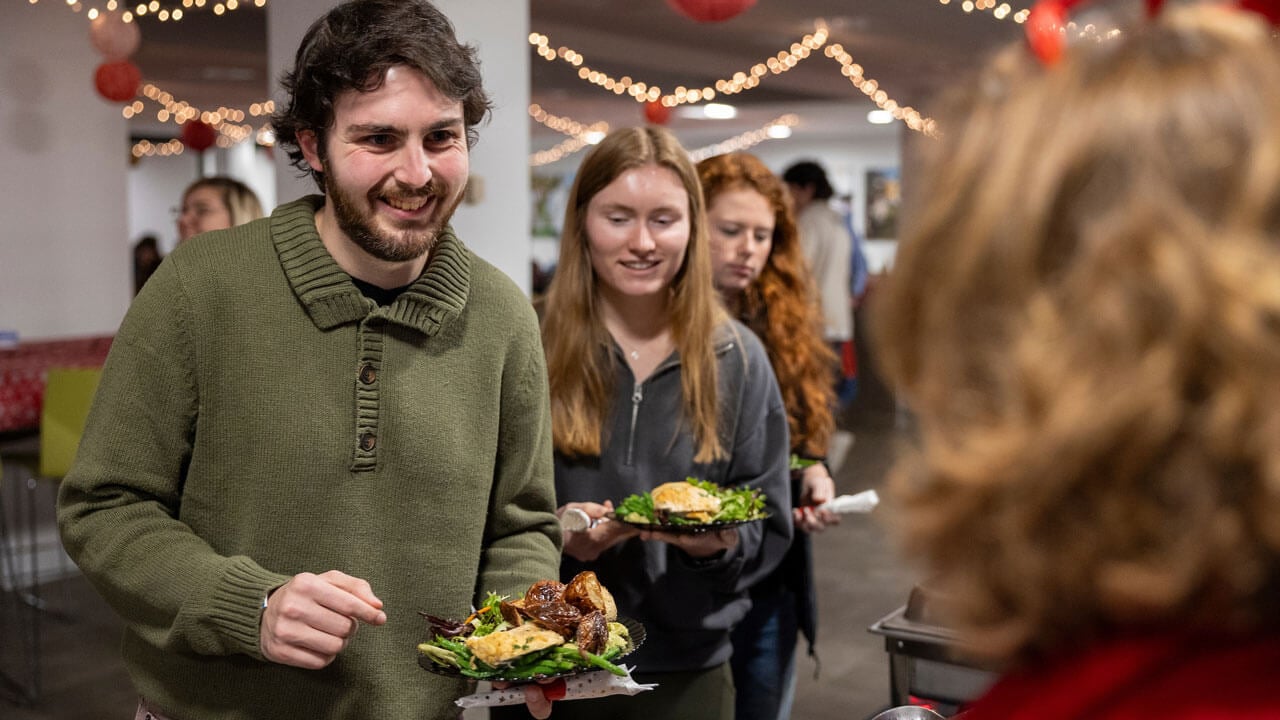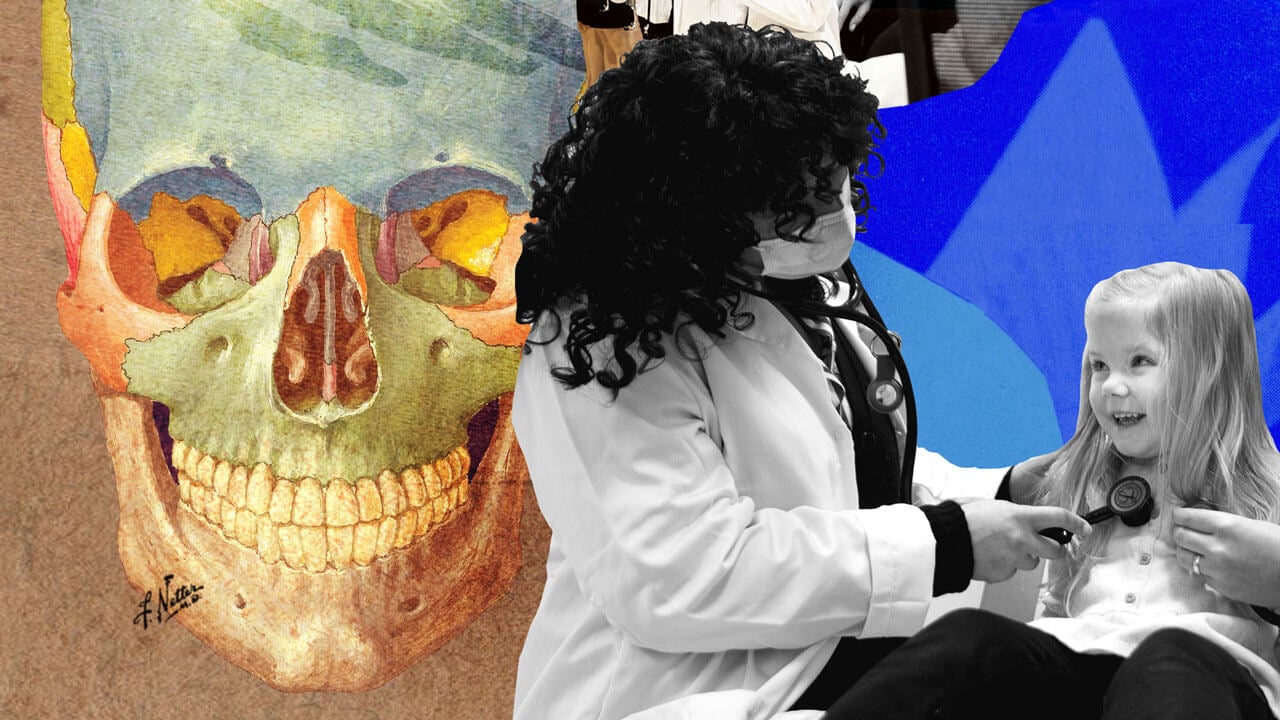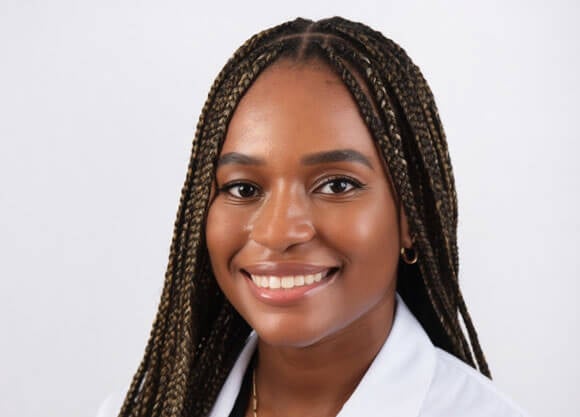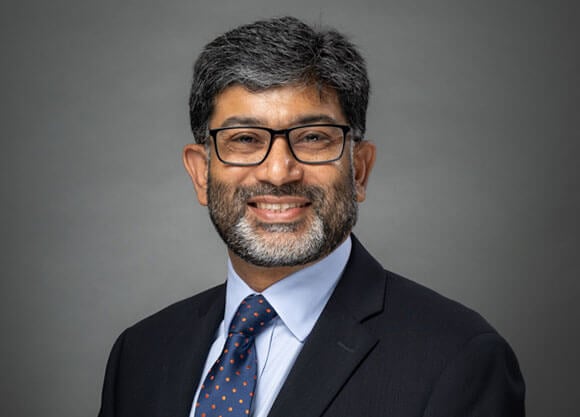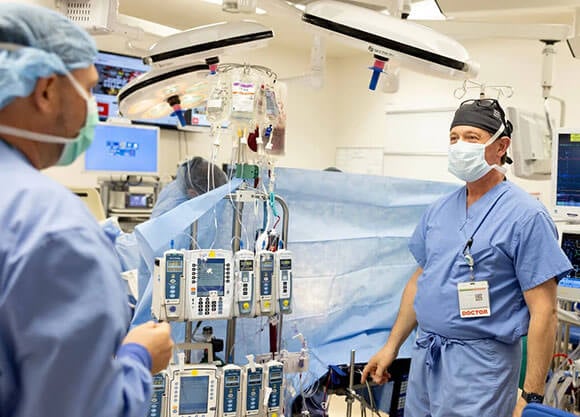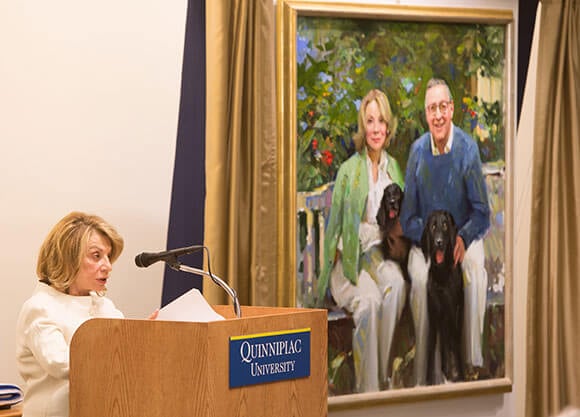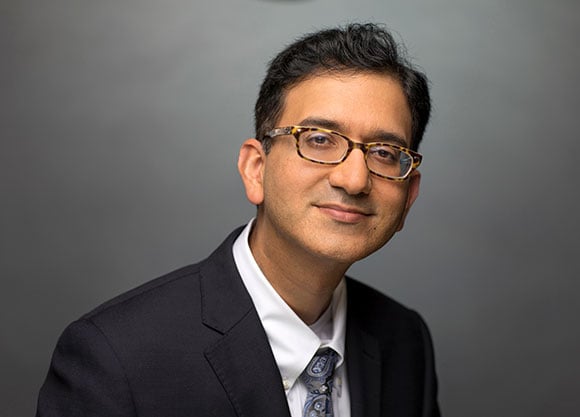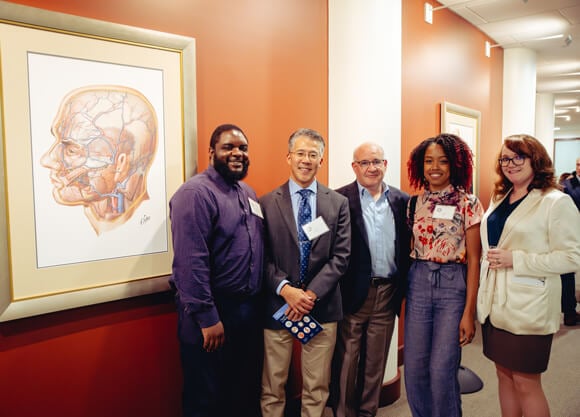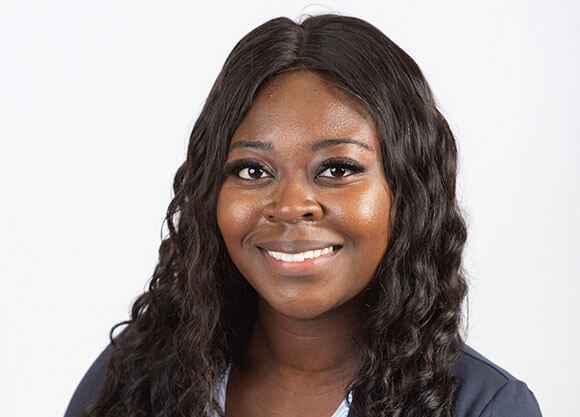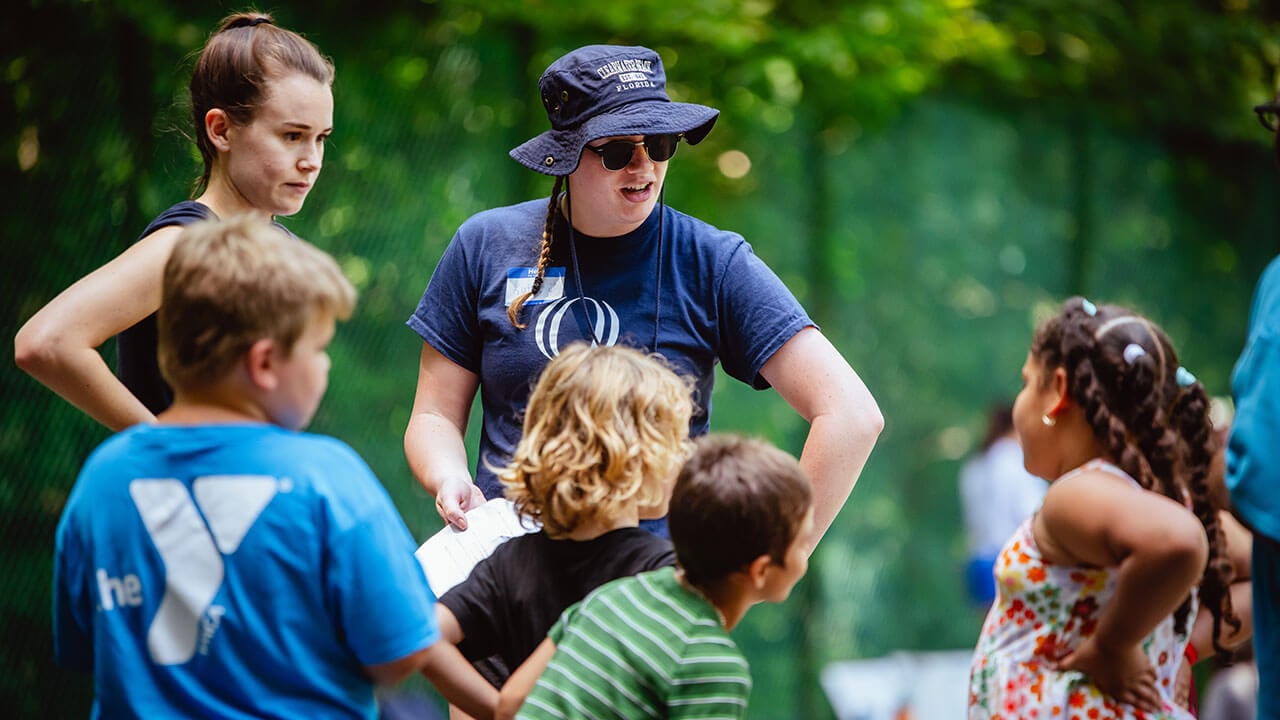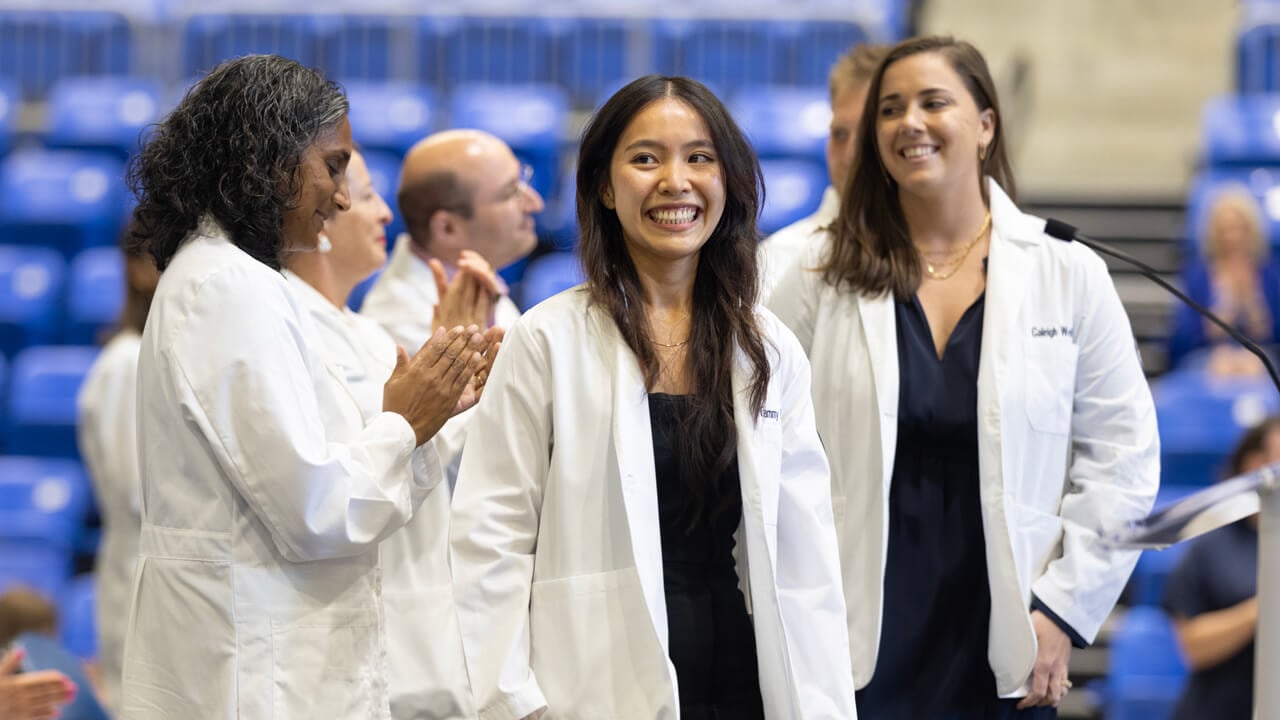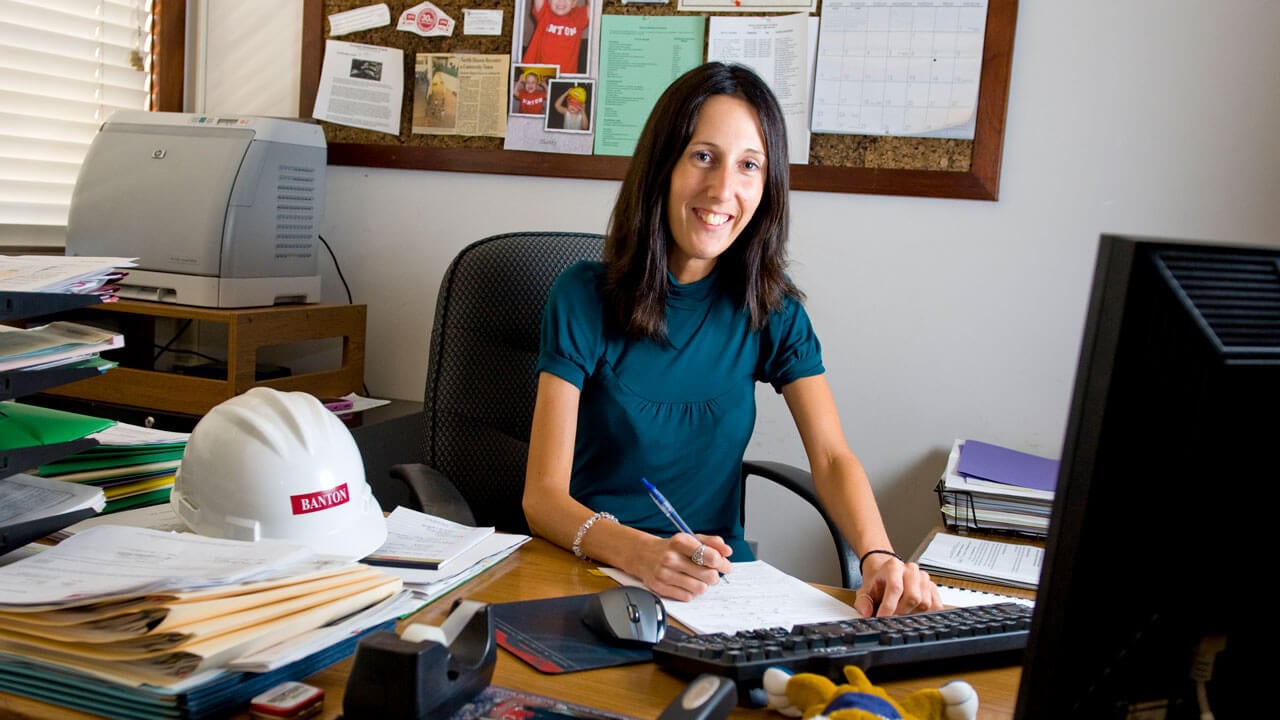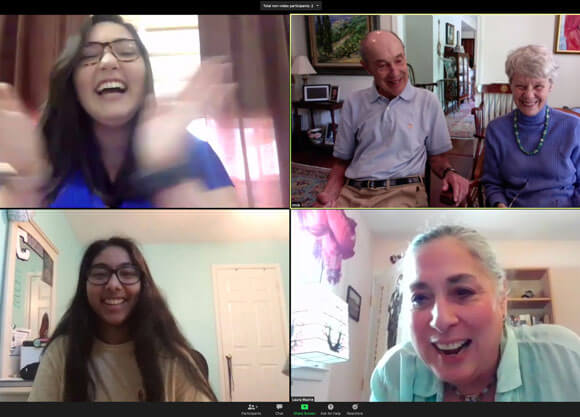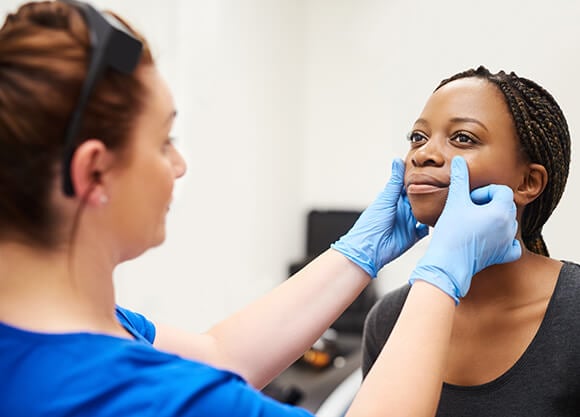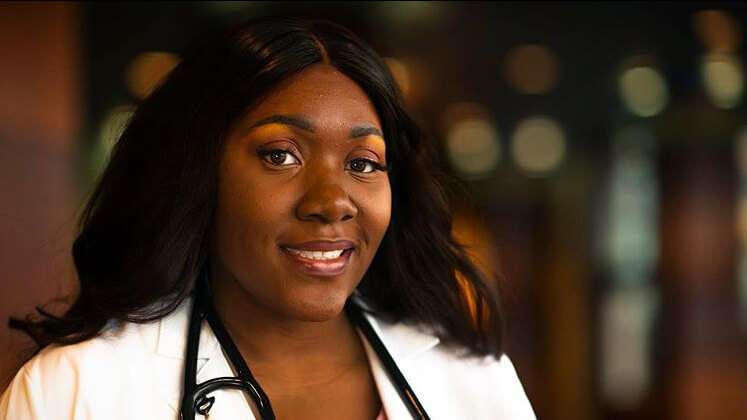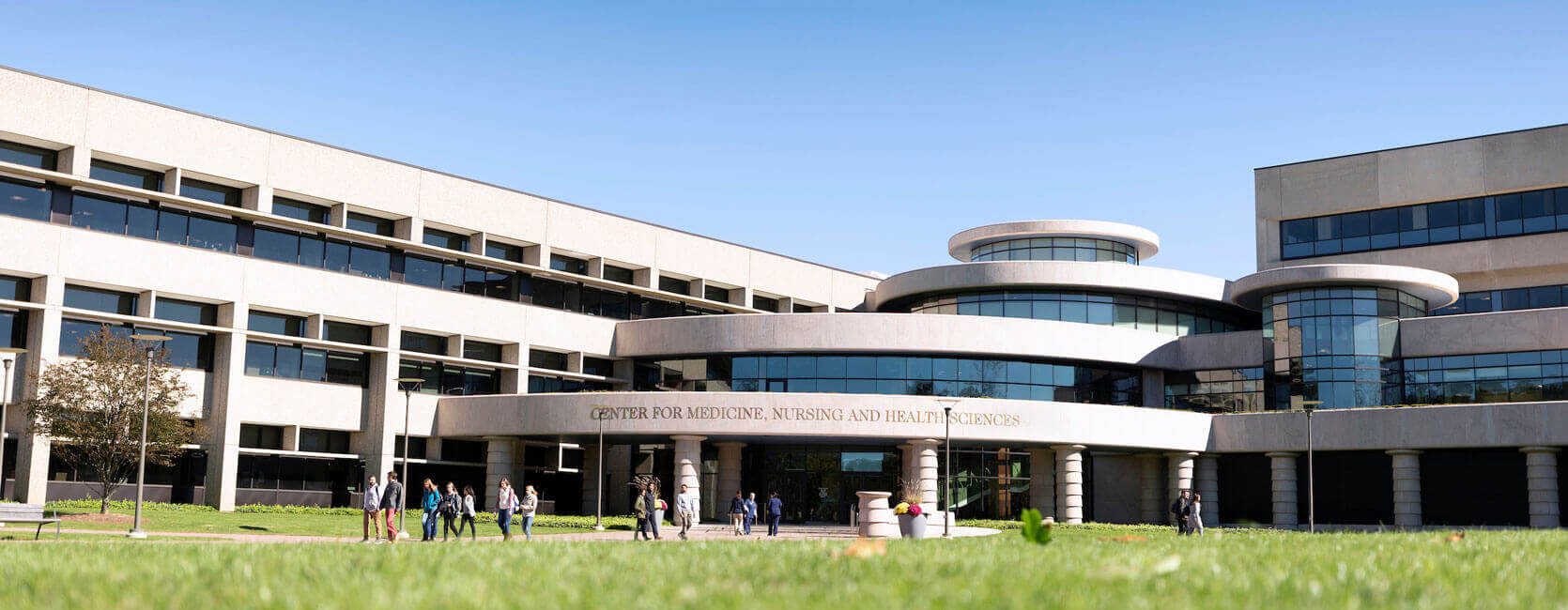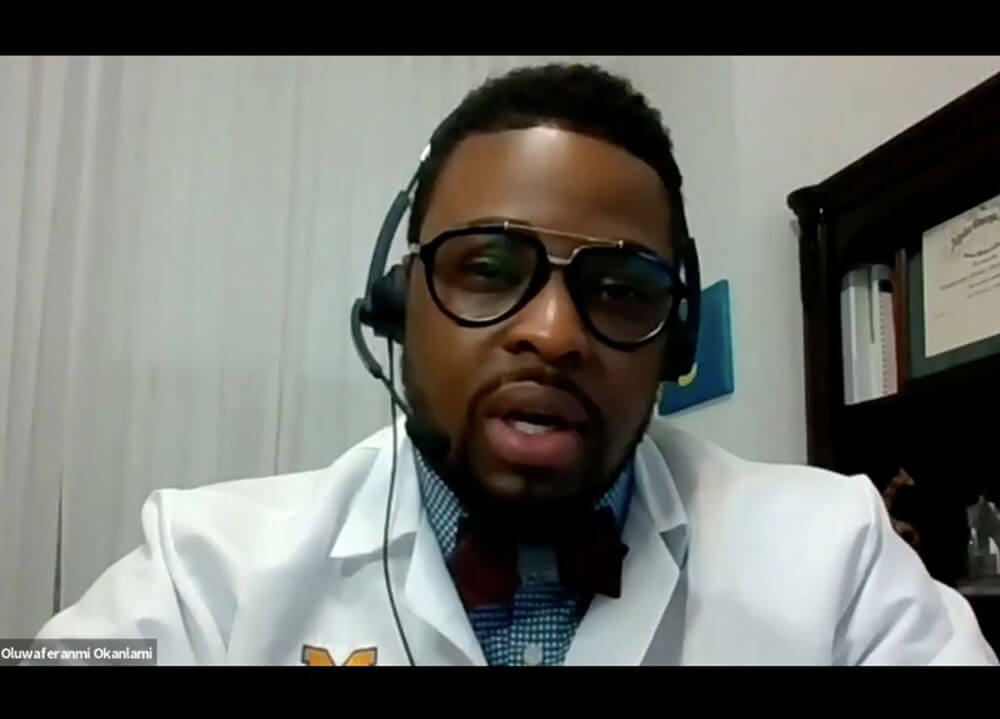
But sometimes, Tran recently learned, the best occupational therapy might just be listening.
Tran was one of 105 students Friday who took part in an interprofessional learning experience about healthcare with transgender patients at Quinnipiac’s Center for Medicine, Nursing and Health Sciences.
Quinnipiac students from several disciplines, including occupational therapy, social work, nursing and the physician assistant program, worked together to practice their holistic skills and to discuss best practices in small groups.
“I knew about the power of interprofessional collaboration when it came to patient care,” Tran said. “But this experience really solidified to me why it’s so important. You’re not just treating the patient. You’re treating the whole person.
“With the LGBTQ+ community, there’s so much I need to learn and want to learn,” she added. “Everyone brings their own life experiences to a situation. It’s so important to remember that.”
This is the ninth year of Quinnipiac’s interprofessional healthcare program, said Emily McCave, a professor of social work with expertise in affirmative practice with sexual minority and gender diverse individuals.
This year’s focus on transgender healthcare can trace its roots back to a more global focus on LGBTQ+ health issues when the program started in 2015. Nearly a decade later, the need for skilled, thoughtful practitioners remains.
“When you look at the literature and you look at health disparities, trans folks are much more likely to be discriminated against within healthcare settings,” McCave said. “They also have higher rates of mental health issues, substance use and other physical health issues. So those health disparities really stood out for us.”
As part of the program, student groups met with expert patients, people with certain identities and/or illnesses who have the expertise and experience to help make the best clinical decisions.
Tran and her group, which included physician assistant students, occupational therapy students and nursing students, met with Jillian, a transgender woman who portrayed a patient with an ankle injury based on a script and her authentic life experiences. Two faculty facilitators, one from social work and another from occupational therapy, were also present.
“Jillian had been tripped intentionally in a kickball game,” Tran explained. “She was dissatisfied with the treatment she received at the hospital. She had been misgendered and misunderstood. You could just tell she was very overwhelmed.”
Tran said while it’s important to discuss using crutches or wearing a boot with a patient in this scenario, it’s also important to listen to patients.
She added that empathy during the initial connection with patients helps with identifying and understanding feelings. She also said compassion gives a practitioner time to sit with patients, but then allows enough space to separate from the feelings and direct the energy to ask, “What can I do to help?”
Likewise, it’s a sign of respect to call transgender patients by their chosen names and pronouns.
For Jillian, this approach made her feel hopeful about the healthcare clinicians of the future.
“The students pretty much come in here a little nervous because they don’t want to offend anyone or say something wrong,” said Jillian, who has worked as an expert patient for five years. “I try to reassure them that I’m very easygoing. I tell them, ‘I’d rather have you get it wrong now, but then as you move along and become more comfortable, ask great questions.’ That’s the key.”
Gabby Ceccolini, interim director of Student Affairs and director of the Standardized Patient and Assessment Center, launched the expert patient program three years ago.
“The reason we developed the expert patient program was because we wanted there to be more authentic conversations,” Ceccolini said. “We don’t want to say, ‘You have to fill this script and just say these certain things.’ There is literature that shows students find authentic experiences to be very insightful.”
Students also watched video interviews and discussed them together. One of the videos was an interview with Sam and Shayn, who are both transgender.
Kim Hartmann, professor of occupational therapy and director of the Center for Interprofessional Healthcare Education, has known Sam his whole life.
“Sam was a patient of mine when she was born. I won’t tell you too many details about her health conditions, but I want to tell you about my bias,” Hartmann said. “When Samantha as a teenager became Sam, I embarrassed her, and I’m very ashamed of that. I embarrassed myself.
"I struggled to shift the pronouns. I struggled to embrace her because I was so in tune with that baby and doing therapy with that baby, Samantha,” she added. “But over the years as Samantha became Sam — and I learned from Sam — I was able to learn from my own biases.”
The learning never stops, Hartmann said, whether you’re a professor, a student, a practitioner or an ally.
Tran agreed.
“One of my biggest takeaways from this [program] is that for people who are nonbinary — and just people in general — it’s important to know that wherever you are in your life, you are still and always have been loved,” Tran said. “Your pronouns do not change your inherent value and worth as a unique human being.”
In this Article
Stay in the Loop
Quinnipiac Today is your source for what's happening throughout #BobcatNation. Sign up for our weekly email newsletter to be among the first to know about news, events and members of our Bobcat family who are making a positive difference in our world.
Sign Up Now